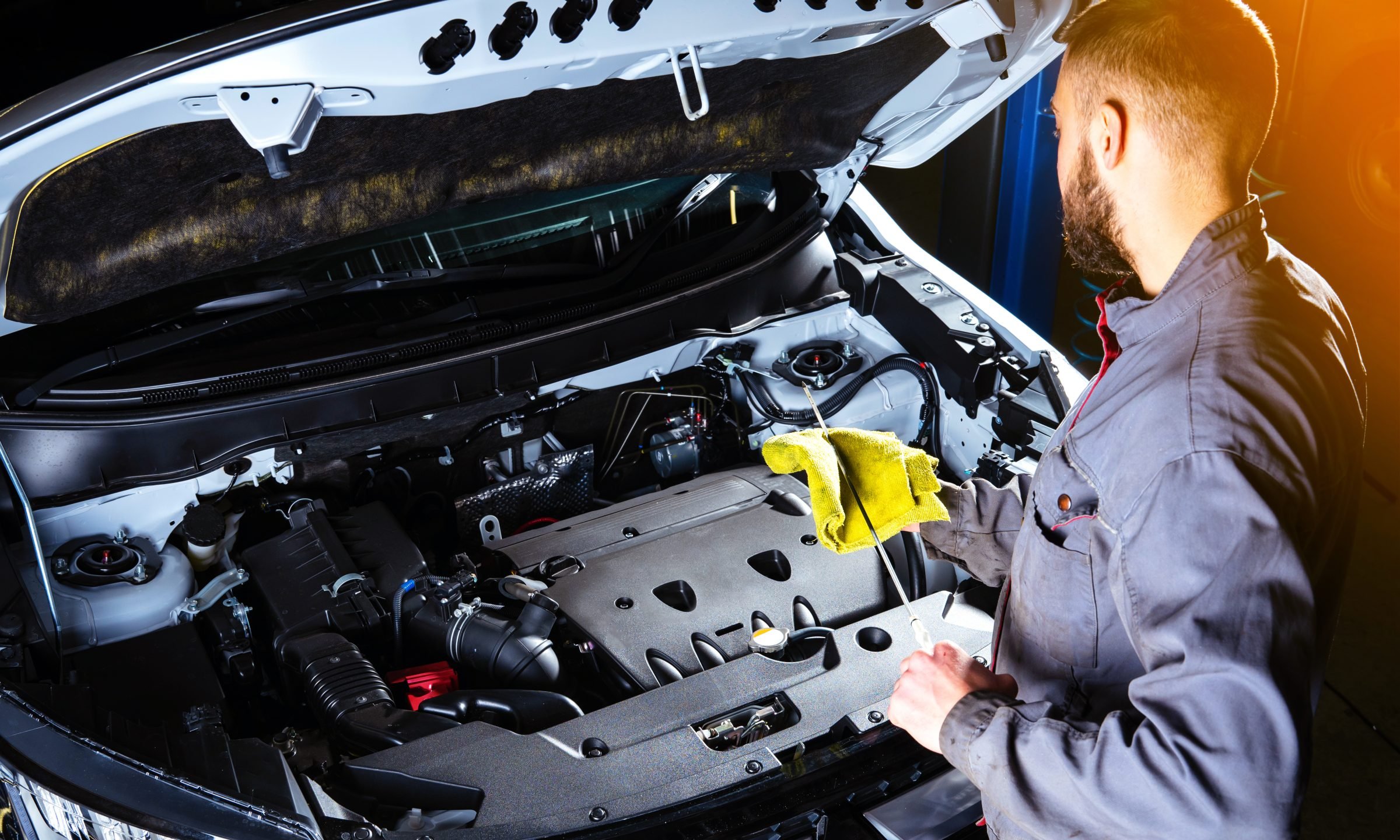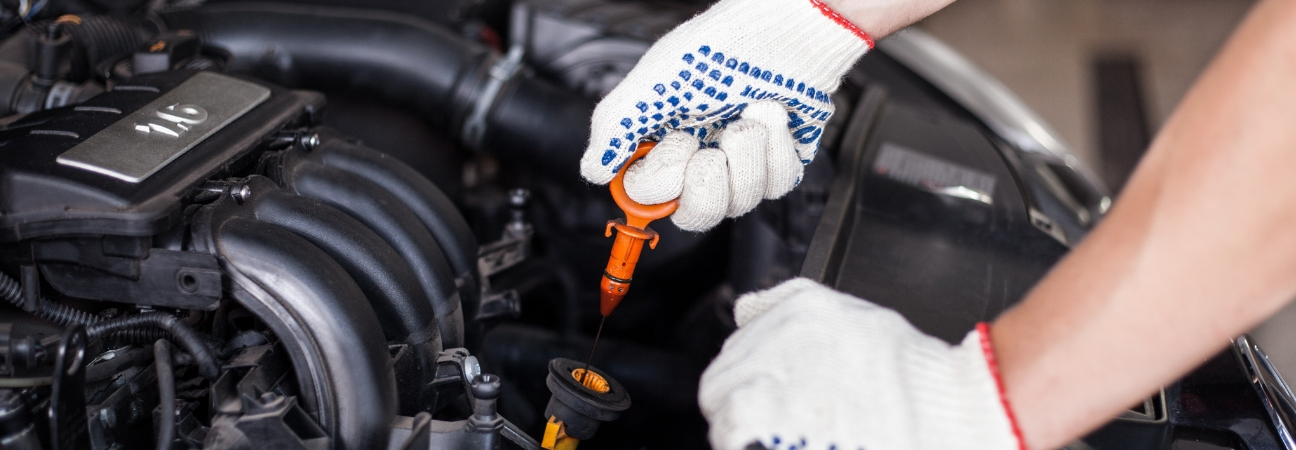All Categories
Featured
Your vehicle's engine is a complex item of equipment that calls for normal treatment to work successfully. By taking preventive steps, you can keep your engine running smoothly and avoid substantial costs.
Engine oil lubricates inner elements, lowering friction and wear. Adjustment the oil and oil filter as recommended by your lorry's supplier-- usually every 5,000 to 7,500 miles for modern cars. Using the appropriate kind of oil is equally crucial; consult your proprietor's guidebook to ensure compatibility with your engine.
The engine's cooling system stops overheating, which can cause severe damage. Check coolant degrees regularly and refill as essential. Furthermore, comply with the producer's standards for flushing and changing coolant to keep the system working effectively.
![]()
Engines need a steady flow of tidy air for burning. A clogged up air filter can lower fuel efficiency and performance. When it appears dirty or after getting to the gas mileage defined in your car's upkeep timetable., check the air filter occasionally and replace it.
Weird sounds, reduced efficiency, or dashboard caution lights often indicate underlying engine issues. Address these caution indicators quickly by speaking with a certified technician to identify and settle problems prior to they escalate.
Gas high quality directly impacts engine health and wellness. Usage fuel with the proper octane score for your vehicle to stay clear of knocking and deposits in the burning chamber. Sometimes, including a gas injector cleanser can likewise help keep a clean fuel system.
Ignition system are vital for firing up the air-fuel mixture in the engine. Worn-out spark plugs can cause misfires, poor fuel economic climate, and increased exhausts. Follow your lorry's maintenance routine to change them at the recommended periods.
![]()
Aggressive driving, such as fast velocity and tough stopping, locations extra stress on your engine. Preserve steady rates and method smooth driving habits to reduce unneeded deterioration.
![]()
Split or used belts and hoses can lead to getting too hot or other engine failings. Evaluate these elements on a regular basis and replace them if you see any type of indicators of wear, such as fraying or splits.
Dust and debris can damage engine components gradually. Make sure all seals are intact which the air intake system is without obstructions. Normal checks can protect against pollutants from causing damage.
Also if your auto seems to be running well, regular examinations by a trusted auto mechanic can reveal surprise issues. A professional can identify wear-and-tear troubles early, saving you from pricey repair work down the line.
By complying with these preventive actions, you can avoid the stress and cost of significant engine fixings. Normal interest and treatment not just maintain your car dependable yet additionally boost its resale worth and overall efficiency.
- Preserve the Oil System
Engine oil lubricates inner elements, lowering friction and wear. Adjustment the oil and oil filter as recommended by your lorry's supplier-- usually every 5,000 to 7,500 miles for modern cars. Using the appropriate kind of oil is equally crucial; consult your proprietor's guidebook to ensure compatibility with your engine.
- Replenish and inspect Coolant Frequently
The engine's cooling system stops overheating, which can cause severe damage. Check coolant degrees regularly and refill as essential. Furthermore, comply with the producer's standards for flushing and changing coolant to keep the system working effectively.

- Monitor Air Filters
Engines need a steady flow of tidy air for burning. A clogged up air filter can lower fuel efficiency and performance. When it appears dirty or after getting to the gas mileage defined in your car's upkeep timetable., check the air filter occasionally and replace it.
- Look Out to Warning Indicators
Weird sounds, reduced efficiency, or dashboard caution lights often indicate underlying engine issues. Address these caution indicators quickly by speaking with a certified technician to identify and settle problems prior to they escalate.
- Usage High-Quality Fuel
Gas high quality directly impacts engine health and wellness. Usage fuel with the proper octane score for your vehicle to stay clear of knocking and deposits in the burning chamber. Sometimes, including a gas injector cleanser can likewise help keep a clean fuel system.
- Change Flicker Plugs in a timely manner
Ignition system are vital for firing up the air-fuel mixture in the engine. Worn-out spark plugs can cause misfires, poor fuel economic climate, and increased exhausts. Follow your lorry's maintenance routine to change them at the recommended periods.
- Avoid Harsh Driving Practices

Aggressive driving, such as fast velocity and tough stopping, locations extra stress on your engine. Preserve steady rates and method smooth driving habits to reduce unneeded deterioration.
- Check Hose Pipes and belts

Split or used belts and hoses can lead to getting too hot or other engine failings. Evaluate these elements on a regular basis and replace them if you see any type of indicators of wear, such as fraying or splits.
- Stop Pollutants from Entering the Engine
Dust and debris can damage engine components gradually. Make sure all seals are intact which the air intake system is without obstructions. Normal checks can protect against pollutants from causing damage.
- Arrange Regimen Examinations
Also if your auto seems to be running well, regular examinations by a trusted auto mechanic can reveal surprise issues. A professional can identify wear-and-tear troubles early, saving you from pricey repair work down the line.
By complying with these preventive actions, you can avoid the stress and cost of significant engine fixings. Normal interest and treatment not just maintain your car dependable yet additionally boost its resale worth and overall efficiency.
Latest Posts
Take Advantage of Special Auto Repair Deals in Chicago at Montclare Auto Repair
Published May 31, 25
1 min read
Check Out the Greatest Auto Repair Discounts in Montclare, Chicago
Published May 26, 25
1 min read
Find Out Why Chicago Drivers Select Montclare Auto Repair for Reliable Service and Huge Savings
Published May 25, 25
1 min read
More
Latest Posts
Take Advantage of Special Auto Repair Deals in Chicago at Montclare Auto Repair
Published May 31, 25
1 min read
Check Out the Greatest Auto Repair Discounts in Montclare, Chicago
Published May 26, 25
1 min read
Find Out Why Chicago Drivers Select Montclare Auto Repair for Reliable Service and Huge Savings
Published May 25, 25
1 min read